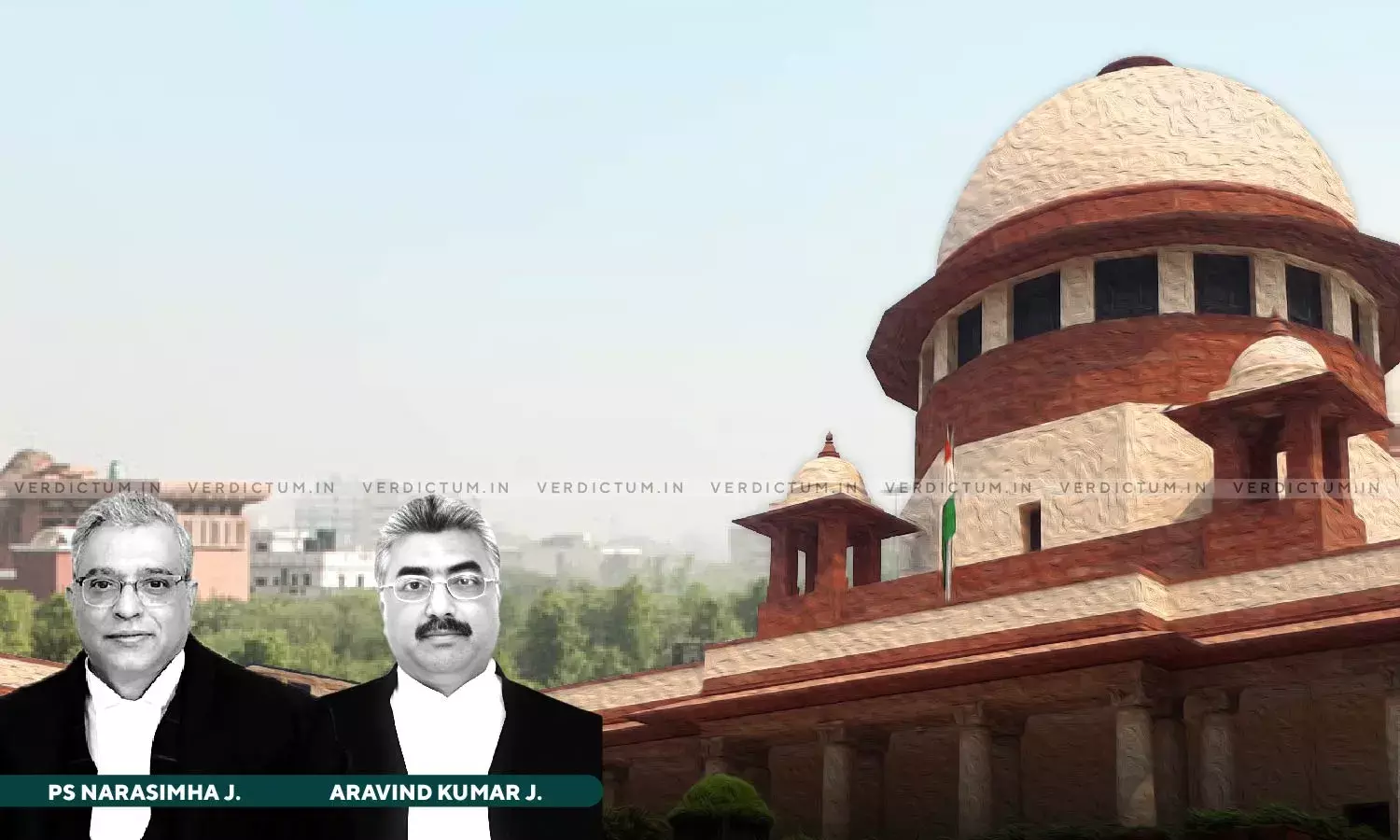MEPS Act| Mere Non-Communication Of Acceptance Of Resignation To Employee Does Not Render The Termination Invalid: SC

The Supreme Court, in the context of Maharashtra Employees of Private Schools (Conditions of Service) Regulation Act, 1977, and Rules framed under it, held that mere non-communication of acceptance of resignation to the employee would not render the termination invalid.
The Court observed that the employment of a public servant is deemed to be terminated from the date on which the appropriate authority accepted the letter of resignation.
The Bench upheld the findings of the Bombay High Court which had held that mere non-communication of acceptance of resignation to an employee would not render the termination invalid.
Justice Pamidighantam Sri Narasimha and Justice Aravind Kumar observed, “It is important to note that in Section 7 of MEPS Act, the three-fold requirement to be fulfilled while tendering a resignation is to protect the interest of the employee, whereas Rule 40 of the Rules was introduced to safeguard the interests of the Management, i.e., to enable the management to make necessary arrangements to replace the existing employee…On a holistic reading of Rule 40, it can be concluded that Management is given the authority to accept the resignation tendered prior to the completion of the notice period and terminate the services of the employee with payment in lieu of the remaining period.”
AOR Sweta Rani represented the appellant, while Advocate Satyajit A Desai appeared for the respondents.
After attempting to resume his duties following the withdrawal of his resignation letter, a school teacher was subsequently relieved from his position by the school management.
The teacher contended non-compliance with the provisions of the MEPS Act and Rules made thereunder which provides for proper acceptance of a resignation. On the contrary, the School management submitted that the Maharashtra Employees of Private Schools (Conditions of Service) Regulation Act, 1977 (MEPS Act and Rules) did not lay down any strict rules with regard to the communication of acceptance of resignation.
The High Court rejected the teacher’s argument that the acceptance of his resignation was never communicated to him and therefore, the termination was illegal.
The Court explained that an employee could not invoke the protection of Section 7 of the MEPS Act to proclaim an unlawful and involuntary resignation when it was an admitted position that the employee voluntarily tendered his resignation.
“At this juncture, it becomes necessary to point out that as per service jurisprudence, the employment is terminated from the date on which the letter of resignation is accepted by the appropriate authority,” the Court remarked.
The Court relied on North Zone Cultural Centre & Anr. v. Vedpathi Dinesh Kumar (2003) 5 SCC 455 where it was held that non-communication of the acceptance does not make the resignation inoperative provided, there is, in fact, an acceptance before the withdrawal. It also established that it was not open to an employee to withdraw their resignation after the appropriate authority accepted it.
Therefore, the Bench held that the contention raised by the teacher about the withdrawal of resignation before the communication of its acceptance did not “hold water.”
Accordingly, the Supreme Court affirmed the findings of the High Court and dismissed the appeal.
Cause Title: Shriram Manohar Bande v. Uktranti Mandal & Ors. (Neutral Citation: 2024 INSC 337)
Appearance:
Appellant: AOR Sweta Rani
Respondents: AOR Anagha S. Desai and Aaditya Aniruddha Pande; Advocates Satyajit A Desai, Siddharth Gautam, Abhinav K. Mutyalwar, Gajanan N Tirthkar, Vijay Raj Singh Chouhan, Ananya Thapliyal, Sachin Singh, Yugandhara Pawar Jha, Siddharth Dharmadhikari, Bharat Bagla, Sourav Singh, Aditya Krishna, Preet S. Phanse and Adarsh Dubey

